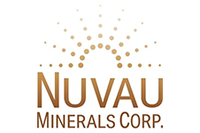Although it is primarily used as an industrial metal, demand for zinc as an agricultural fertilizer is gaining attention from scientists, governments and mining companies.
In the story of exploding global agricultural demand, zinc’s role has not been a prominent one. But now that it is emerging from the shadows cast by potash, phosphate and nitrogen fertilizers, zinc’s role as a micronutrient could turn out to be critical and lucrative.
In the global push for food security, increasing yields and the total quantity of agricultural output have received the most attention, while food quality and nutritional value are often passed over. At the crossroads of both these concerns is a case for micronutrients — particularly zinc.
Zinc is necessary for energy production, protein synthesis and growth regulation within plants, and can limit plant growth if it is not available in sufficient quantities during key stages of plant development. Stretching beyond plant characteristics, zinc deficiency in humans — which arises from consuming zinc-deficient foods — can retard growth, decrease immunity and delay puberty.
With food demand expected to increase by 50 percent over the next two decades, zinc producers are quickly realizing that demand for the metal will extend beyond the industrial core and out into the agricultural heartlands.
Increasing yield
Although they do not understand the specific role that zinc plays in plant development, plant scientists have shown that zinc is an important component of plant growth. Combined with macronutrients like potash, phosphate and nitrogen, zinc can support root growth and increase leaf size and resilience during stressful growing conditions.
The move to increase the amount of zinc in plants and foods is widespread and is supported by companies like Mosaic (NYSE:MOS) and K+S Group (FRA:SDF) company K+S KALI. Zinc fertilizers, most prominently zinc sulphate, are being used to reduce zinc deficiencies in both humans and plants.
Zinc application typically occurs in sandy soils that are low in organic matter. Other key components, such as cold, wet spring weather and a high soil pH also restrict plants’ ability to uptake zinc from organic soils. High levels of available phosphorus and iron in soils can also have a detrimental impact on zinc uptake, and those conditions often require increased zinc application if not adequately managed.
The case for zinc fertilizers is often strongest in locations such as the US, Canada, Turkey and China. The relatively northern state of Minnesota, which ranks third in US soybean production and fourth in corn production, is one location where zinc fertilizer programs are being applied to large-scale industrial food crops like corn, sweet corn and soybean crops.
With this year’s early start to corn and soybean crops in northern US agricultural states, many retailers have seen increased demand for zinc, according to Jereleen Brydon, director of marketing at Wolf Trax.
“The challenge, especially with corn, is getting the crop off to a good start,” Brydon recently told CropLife. “Many growers are using starter fertilizer and adding zinc.”
However, the application of zinc and other micronutrients has limitations. Jerry Stoller, president of plant performance product company Stoller USA, said that the use of micronutrients has been limited by cost and weather considerations.
“Sales from June onward quickly dropped off, as micronutrient and other yield enhancement product sales made a severe decline as crop deterioration occurred. Naturally, growers were hesitant to add any additional cost to crops that were being so severely damaged by climactic conditions,” Stoller told CropLife.
Zinc miners take notice
More and more zinc miners have begun looking at getting involved in the market for zinc’s agricultural applications.
Prominex Resource (TSXV:PXR), a Vancouver-based zinc and copper exploration company with operations in Newfoundland, believes that zinc-based fertilizers will be a future driver of zinc prices.
Prominex cites studies that state that the total amount of zinc-containing compound fertilizers produced and applied in Turkey, where zinc application began in earnest 20 years ago, has reached a record level of 300,000 tonnes per year. Prominex also notes that the estimated economic benefits associated with the application of zinc fertilizers on zinc-deficient soils in Turkey is around US$100 million per year.
Further, in March of this year Teck Resources (TSX: TCK.A) signed an agreement that promotes the use of zinc as a fertilizer with the Chinese Ministry of Agriculture.
Don Lindsay, President and CEO of Teck, said of the agreement that “[w]orking with NATESC [China’s National Agricultural Technology Extension Service Center] we can increase the use of zinc fertilizers in China to significantly improve crop yields, reduce zinc deficiency and ultimately improve human health.”
With the expanding population causing large-scale growth of food demand, it is only a matter of time before the question of food quantity is paired with that of food quality. Zinc could be a decisive component for both of these concerns in select agricultural markets.
Securities Disclosure: I, James Wellstead hold no investment interest in any company mentioned in this article.
